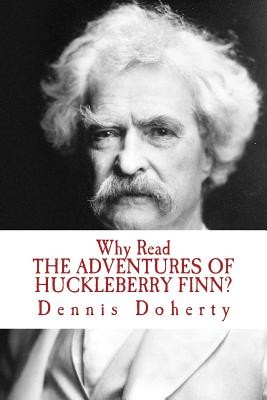
- We will send in 10–14 business days.
- Author: Dennis Doherty
- Publisher: New Street Communications, LLC
- ISBN-10: 061594583X
- ISBN-13: 9780615945835
- Format: 15.2 x 22.9 x 0.5 cm, minkšti viršeliai
- Language: English
- SAVE -10% with code: EXTRA
Reviews
Description
"All modern American literature comes from one book by Mark Twain called HUCKLEBERRY FINN. ... It's the best book we've had. ... There was nothing before. There has been nothing as good since."- Ernest Hemingway
Since its publication in 1884, Mark Twain's THE ADVENTURES OF HUCKLEBERRY FINN has been praised as the great American novel, the touchstone of modern American fiction, and the first great experiment in American literary realism. It has also been much maligned and frequently banned - in its own time for the outrage of presenting a black as a friend operating on equal terms with a white, and in our era as a racist screed decried for its use of the racial epithet "nigger". In this compelling and insightful examination of Twain's classic, Dennis Doherty (SUNY, New Paltz) shows both of these criticisms to be simplistic. Doherty reveals the book as a seminal picaresque "coming of age" journey - a quest for truth - and clearly demonstrates how the novel speaks directly to the heart of racism not only in the past, but in the present.- Author: Dennis Doherty
- Publisher: New Street Communications, LLC
- ISBN-10: 061594583X
- ISBN-13: 9780615945835
- Format: 15.2 x 22.9 x 0.5 cm, minkšti viršeliai
- Language: English English
"All modern American literature comes from one book by Mark Twain called HUCKLEBERRY FINN. ... It's the best book we've had. ... There was nothing before. There has been nothing as good since."- Ernest Hemingway
Since its publication in 1884, Mark Twain's THE ADVENTURES OF HUCKLEBERRY FINN has been praised as the great American novel, the touchstone of modern American fiction, and the first great experiment in American literary realism. It has also been much maligned and frequently banned - in its own time for the outrage of presenting a black as a friend operating on equal terms with a white, and in our era as a racist screed decried for its use of the racial epithet "nigger". In this compelling and insightful examination of Twain's classic, Dennis Doherty (SUNY, New Paltz) shows both of these criticisms to be simplistic. Doherty reveals the book as a seminal picaresque "coming of age" journey - a quest for truth - and clearly demonstrates how the novel speaks directly to the heart of racism not only in the past, but in the present.

Reviews